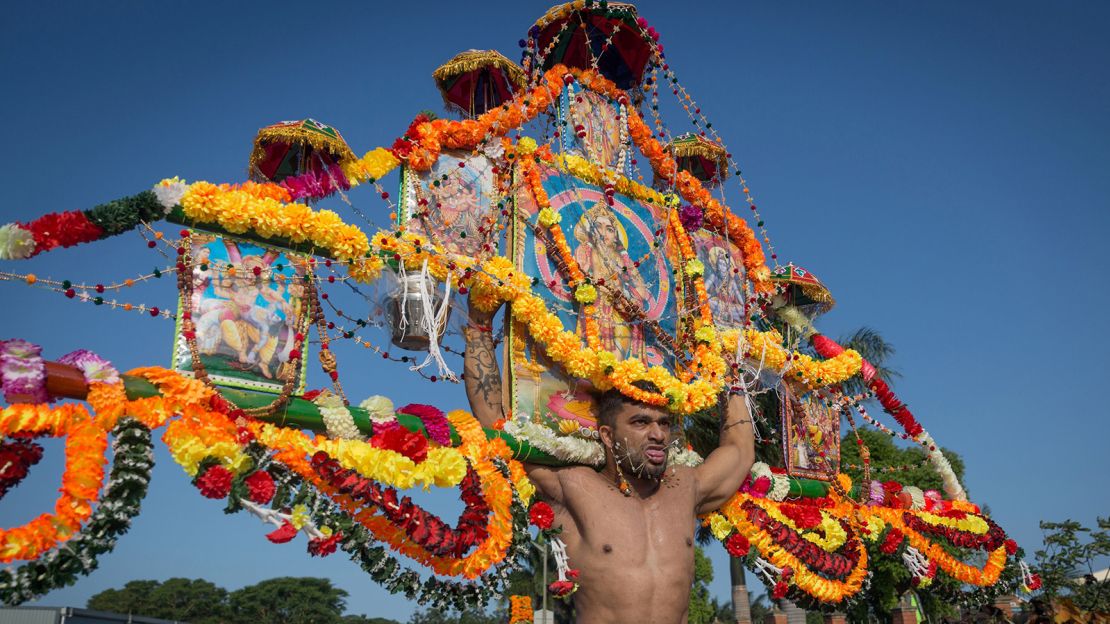On the surface, the Hindu festival of Thaipusam might seem like any other thanksgiving or new year event.
Celebrated during the full moon in the Tamil month of Thai (January/February), which is January 21 this year, it’s a time to ask Lord Murugan, son of Lord Shiva, for forgiveness, good health and peace in the new year.
But here’s where things get wild.
As part of the festival’s rituals, many participants engage in various acts of devotion and control over their senses – including piercing the skin, tongue or cheeks. Some walk over burning coals.
Devotees believe their sins can be cleansed through such acts, while also reaffirming their Hindu faith.
Celebrated around the world
Celebrations take place in Tamil communities in India and beyond, with particularly large events hosted in Malaysia and Singapore.
While Thaipusam is only one day each year, devotees begin to fast and cleanse several days before the festival and celebrations can go on for several days.

“The word Thaipusam is a combination of the name of the month, Thai, and the name of a star, Pusam,” explains Singapore’s official Thaipusam website. “This particular star is at its highest point during the festival.”
The highlight of the celebrations is the kavadi pilgrimage.
It’s a large, colorful procession that takes place the morning of Thaipusam.
Devotees dress in bright orange and yellow – Lord Murugan’s favorite colors – while they chant and walk to the temple.
Some carry a kavadi, or offering (often a wooden or bamboo-made structure lavishly decorated with peacock feathers) during the procession. Others simply carry milk pots and fruits as offerings along the way.
Many pierce their faces with metal spikes and have hooks inserted into their bodies while in a trance as they join the procession.
For visitors hoping to witness the festivities, the pilgrimage varies slightly from place to place.
In Malaysia, Thaipusam is a public holiday in several states and events begin several days before the main procession.
At the most famous event, beating drums accompany hundreds of thousands of Hindu worshippers as they inch their way toward the entrance of the Batu Caves just north of Kuala Lumpur, before they climb the 272 steps to the temples inside one cave.
In Singapore, the ceremony starts in the early morning. Devotees leave Sri Perumal Temple along Serangoon Road in Little India then make their way down a four-kilometer route to Sri Thendayuthapani Temple, forming an unbroken procession of spikes, hooks and milk pots, often singing and dancing.
According to the Straights Times newspaper, some 20,000 people are expected at this year’s Singapore Thaipusam procession, held January 20-21.
At Periyanayaki Temple in Palani, Tamil Nadu, a 10-day event features a variety of events in addition to the procession.
Many also observe a vegetarian diet during the month of Thai. Some cities have street food stalls set up to sell sweets and snacks – also in yellow and orange – for followers.







